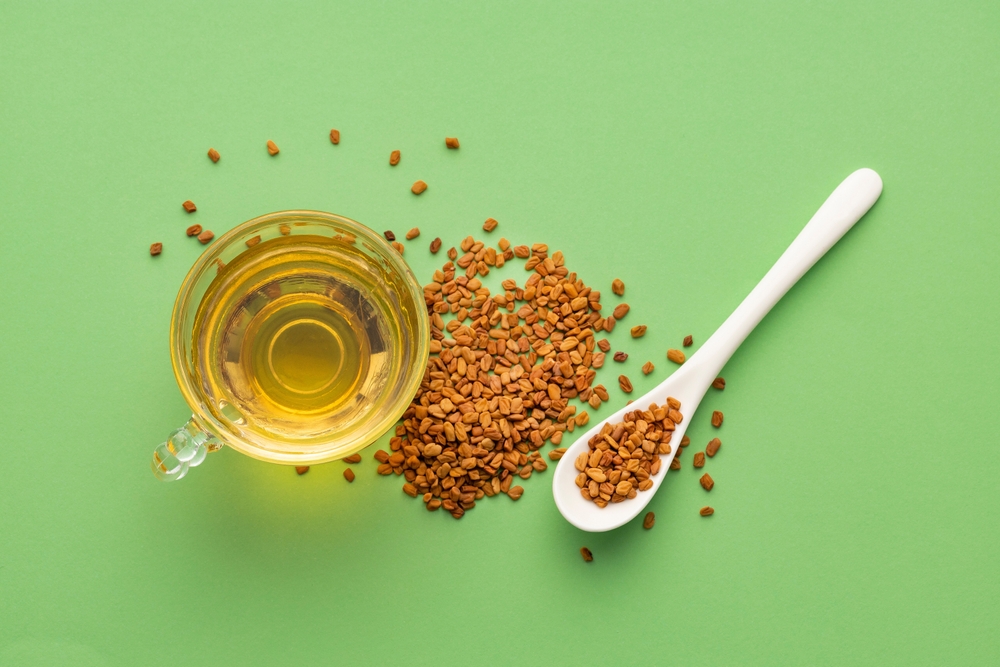The Cultivation and Usages of Fenugreek in Egypt
Fenugreek (Trigonella foenum-graecum) is a plant native to the Mediterranean region and parts of Asia, where it has been cultivated for thousands of years for both its culinary and medicinal purposes. In Egypt, fenugreek, locally known as “Hilba,” has a long-standing tradition of being a vital crop and ingredient. Its cultivation and diverse uses have woven it deeply into Egyptian agricultural practices, cuisine, and folk medicine.

The Cultivation of Fenugreek in Egypt
Egypt’s fertile soil and favorable climate make it a suitable region for cultivating fenugreek. The plant thrives in arid and semi-arid regions, making Egypt’s riverbanks and the Nile Delta prime areas for its growth. Farmers in Egypt typically sow fenugreek seeds between November and February, taking advantage of the cooler months to promote healthy growth. The crop is relatively undemanding, requiring minimal fertilizers and withstanding drought conditions, making it ideal for Egypt’s agricultural landscape.
Fenugreek plants generally grow to about two feet tall, producing small, yellowish-white flowers that develop into pods containing 10 to 20 seeds. The seeds, which are the most valuable part of the plant, are harvested in the spring or early summer. They are rich in essential oils, fiber, and proteins, making them a sought-after commodity in both local and international markets.
In Egyptian agriculture, fenugreek is also grown as a nitrogen-fixing crop, which helps to improve soil fertility. This practice makes it not only an economically viable plant but also an ecologically beneficial one, enhancing soil quality for subsequent crops.
Culinary Usages of Fenugreek in Egypt
Fenugreek plays a prominent role in Egyptian cuisine. Its seeds are often used in a wide variety of dishes, adding a distinctive nutty and slightly bitter flavor. One of the most popular ways fenugreek is consumed is in “Hilba tea,” a traditional herbal infusion made by boiling fenugreek seeds in water. This tea is often sweetened with honey or sugar and is valued for its health benefits, including soothing digestive issues and boosting lactation for nursing mothers.
In Egyptian kitchens, fenugreek seeds are also used in bread-making, especially in rural areas. The seeds are ground into a fine powder and mixed with flour to create a distinctive, flavorful flatbread. This is especially common during religious festivals and traditional family gatherings.
Another common use of fenugreek in Egypt is in the preparation of “Halba,” a traditional thick paste made with fenugreek seeds, flour, and honey or molasses. It is consumed as a sweet treat or used medicinally for its purported health benefits.
Medicinal and Traditional Usages
Beyond its culinary significance, fenugreek has been used in Egypt for centuries as a medicinal herb. Its medicinal properties are highly regarded in traditional Egyptian and Islamic medicine, where it is believed to cure a variety of ailments. Fenugreek is known for its anti-inflammatory, antimicrobial, and antioxidant properties, and it is commonly used to treat conditions such as digestive problems, skin inflammation, and respiratory issues.
For nursing mothers, fenugreek is famous for its ability to enhance milk production. It is often recommended by herbalists and midwives as a natural remedy to support lactation. This practice dates back to ancient times, with records indicating that fenugreek was used for similar purposes in Pharaonic Egypt.
Additionally, fenugreek seeds are known to help regulate blood sugar levels and improve insulin sensitivity, making them a popular natural remedy for diabetes management in traditional medicine. In recent years, these benefits have gained attention in modern medical research, validating the historical use of fenugreek in Egypt and other parts of the world.
Fenugreek in Egyptian Commerce and Trade

Historically, fenugreek was a staple crop in Egypt’s agricultural exports, traded along routes stretching throughout the Middle East, Africa, and the Mediterranean. Today, Egypt remains one of the primary producers of fenugreek globally, with exports playing a significant role in the country’s agricultural economy. Egyptian fenugreek is valued for its high-quality seeds, which are exported as raw seeds or ground powder for use in international food and pharmaceutical industries.
The spice trade is an essential part of Egypt’s economic fabric, and fenugreek is a notable player. Its high demand in both food and health industries ensures that it remains a profitable crop for Egyptian farmers.
Conclusion
Fenugreek’s journey from the fields of Egypt to kitchens and medicine cabinets around the world is a testament to its versatility and cultural importance. Its ease of cultivation in Egypt’s climate, combined with its diverse culinary, medicinal, and commercial uses, makes fenugreek a valuable crop that has played a significant role in the country’s history and daily life. Whether in a traditional dish, a cup of tea, or a medicinal remedy, fenugreek continues to be an integral part of Egyptian heritage and agriculture.


